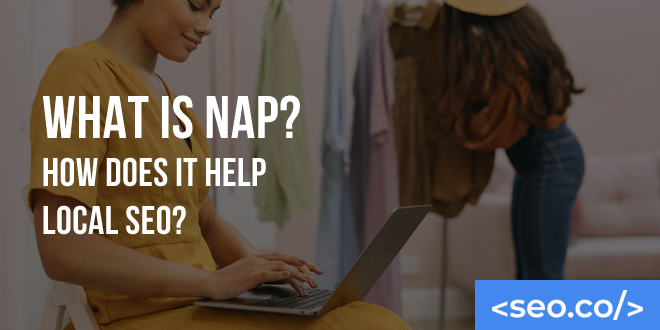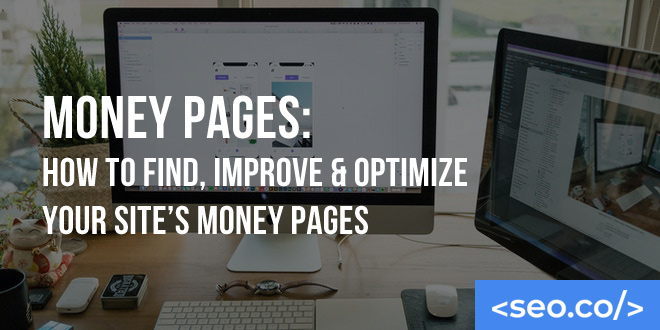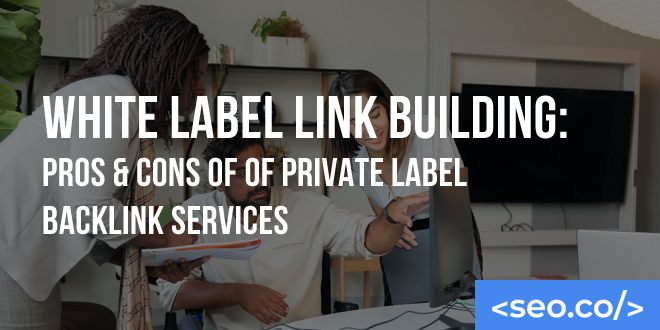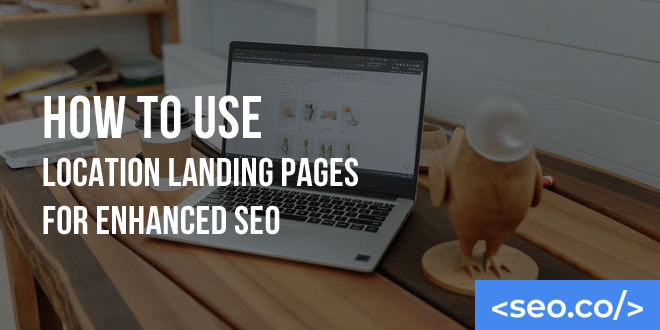
What is NAP? 5 NAP Strategies to Help Local SEO
Whether you are selling online or on television, using the same tagline, colors, and logo will make the audience trust your brand. But advertising online adds an additional wrinkle – it’s also critical to have NAP consistency, which stands for Name, Address, and Phone Number. Ensuring your NAP data is accurate everywhere on the Web is vital for your local SEO ranking. Google and other search engines crawl this information when finding out about your company. This vital data is stored and part of Google’s decision about your local search rankings. How important is accurate NAP data? A recent study found that NAP consistency could change your online performance by 16%! Learn more about NAP, local SEO, and more below. NAP And The Importance Of Backlinking Your online business listing must be a critical part of your overall marketing strategy on the Internet. These business listings are highly effective backlinks that will boost your site’s authority with Google and others. When we say backlink, we mean a link from a related website to yours. When a website with high authority links to your website, Google sees that as a good thing and will probably raise your ranking over time. However, if your Name, Address, and Phone Number are inconsistent from listing to listing, this will damage your credibility in the public’s and Google’s eyes. For example, if you are doing SEO as a personal injury attorney, you work in what is often a life-or-death profession. People go to your site or your Google Business Profile (GBP) to find information about personal injury topics and to locate a good attorney. If your NAP is inconsistent from one site to another in your law firm, that can be a serious problem. If NAP on one of your sites says one thing and NAP on the other says another, people will be confused. And, critically, search engines won’t trust your company. It’s especially important for NAP to be consistent if you operate in the health, financial, or professional services industries. How To Get The Most Out Of NAP It’s vital to ensure that your company’s NAP information is leaning into your SEO strategy to maximum effect. You can do that by following these steps: Make updates to your NAP information whenever anything changes. This step is critical if your company is new, moved, or has new storefronts. Keep your NAP as consistent as possible between online business listings. Put your company on major business indexes, such as Yelp and the BBB. How to Set Up Your NAP We’ve covered how important NAP is to local SEO results. However, there are several finer points to review before moving ahead. The following details might seem excessive but they matter a lot to your Google ranking. How Will You Display Your Company Name? For official local businesses online, you should always use your firm’s full name as it exists officially. For instance, if your law firm is John Smith Personal Injury Attorney, you shouldn’t list it in your NAP as John Smith Personal Injury Lawyer. It is the same thing but consistency is essential for the best use of NAP for local SEO. How Will You List Your Company Address? Everyone uses various abbreviations and notations when they write down physical addresses. For example, you may write ‘street’ but your husband writes ‘St.’ These small differences are a big deal with your NAP. The physical address should be the same on every website. Below are a few ways to write a business address. All of them work; they just need to be consistent across the Internet: 700 Orlando Avenue 700 Orlando Ave. 700 Orlando Ave It also helps to keep NAP consistency when you print marketing materials, including business cards, brochures, and flyers. This NAP data is one of the key components for showing up in Google’s local pack. How Will You List Your Phone Number? As with your physical address, there are many ways to list your phone number online. Just make it consistent for the best NAP data: (877)-886-9615 877-886-9615 (877) 886-9615 Your phone number should be listed the same in print, too. Don’t forget letters, invoices, checks, pamphlets, etc. Whenever possible, use a local phone number with the area code of your location. This helps search engines understand your local relevance. Unsure how to list your NAP? Look at the business paperwork you got when you first registered the company. Whatever your filing paperwork says, make that your NAP data. Use Structured Data Markup with Your Phone Number As an example for the code: { “@context”: “https://schema.org”, “@type”: “LocalBusiness”, “name”: “Your Business Name”, “address”: { “@type”: “PostalAddress”, “streetAddress”: “123 Main St”, “addressLocality”: “Your City”, “addressRegion”: “Your State”, “postalCode”: “12345” }, “telephone”: “+11234567890” } Add Your Phone Number to Your Website At the risk of sounding too obvious, I’ll still give specific advice about making your information available to both users and search engines. Include your phone number prominently on your website, ideally in the header, footer, and contact page. Use the same format everywhere to maintain consistency. Submit to Local Citations Services Submit your business information to local directories and local link citation sites. Use services like Moz Local, Yext, or BrightLocal to manage your listings and ensure your NAP information is consistent across all platforms. Regularly audit your existing citation listings to ensure your phone number and other NAP information are accurate and up-to-date. Ensure there are no duplicate listings of your business with different phone numbers, as this can confuse search engines and customers. Creating A NAP Record Online Creating your NAP online isn’t difficult. It only takes a few steps and a sprinkling of common sense: Make your NAP information as simple to find as possible on your website. Google will crawl this information to check how authoritative and credible you are. Don’t forget to put the NAP in the text on every page and not in a picture. Otherwise, Google can’t grab it, unless your programmer puts it







